News
-

Groundwater monitoring for methane required near energy wells: UBC researcher
April 4, 2017
A study published in Nature Geoscience indicates that when methane leaks from energy resource development such as fracking it is highly mobile in groundwater, potentially travelling far beyond a leaky well and posing a safety risk. “Currently monitoring for gas leakage is conducted at… read more
-
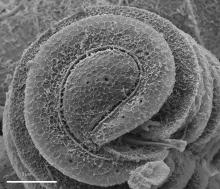
Tiny plankton wields biological ‘Gatling gun’ in microbial Wild West
April 3, 2017
Researchers have obtained an unprecedented view of the ‘ballistic’ weaponry of planktonic microbes, including one that can fire projectiles as if wielding a Gatling gun. “We think of plankton as the tiny alphabet soup of the ocean, floating around passively while larger… read more
-
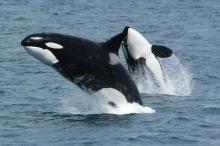
Whale 'breath' reveals bacteria threatening endangered killer whales
March 31, 2017
Droplets and exhaled breath caught from the blowholes of killer whales along the Pacific coast are providing scientists with insights into whale health and revealing bacteria and fungi that may be a threat to the mammals. “We wanted to find out what sort of bacteria and fungi represent in… read more
-
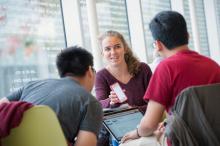
Innovative software converts Wi-Fi data into energy savings
March 30, 2017
For the first time in Canada, a University of British Columbia engineer has found a way to use Wi-Fi to determine the number of building occupants and adjust ventilation accordingly – saving energy without sacrificing air quality. “Every day, thousands of smartphones, laptops and… read more
-
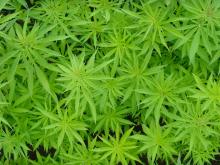
Researchers identify genes that give cannabis its flavour
March 29, 2017
UBC scientists have scanned the genome of cannabis plants to find the genes responsible for giving various strains their lemony, skunky or earthy flavours, an important step for the budding legal cannabis industry. “The goal is to develop well-defined and highly-reproducible cannabis… read more
-
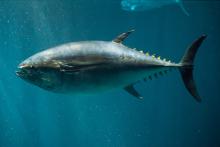
Fish evolve by playing it safe
March 21, 2017
New research supports the creation of more marine reserves in the world’s oceans because, the authors say, fish can evolve to be more cautious and stay away from fishing nets. The research suggests that by creating additional “no-take” areas, some fish will stay within marine… read more
-

Scotiabank funds $2-million cybersecurity and financial data initiative at UBC
March 13, 2017
UBC is poised to accelerate cybersecurity and financial risk research in Canada and beyond, thanks to a $2-million donation from Scotiabank. Over the next five years, The Scotiabank Cybersecurity and Risk Analytics Initiative will support research and educational initiatives, including… read more
-
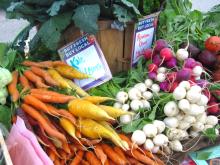
Organic is only one ingredient in recipe for sustainable food future
March 10, 2017
Many people choose organic thinking it’s better for humans and the planet, but a new UBC study published today in Science Advances finds that might not always be the case. “Organic is often proposed a holy grail solution to current environmental and food scarcity problems… read more
-

Survival instinct, not family bonds, weave massive spider colonies together
March 7, 2017
Spiders will live in groups if environmental conditions make it too difficult for single mothers to go it alone, new research shows. It is rare for spiders to live in groups. The arachnids studied for this research build webs that require a lot of silk, making the rainy conditions of the lowland… read more
-

UBC researchers develop mobile sensors to monitor urban gas emissions
March 1, 2017
Cities play a key role in reducing greenhouse gas emissions to combat climate change, but directly measuring emissions remains a challenge. In a paper published today in Atmospheric Measurement Techniques, UBC researchers share a novel method they developed to map carbon dioxide emissions—… read more